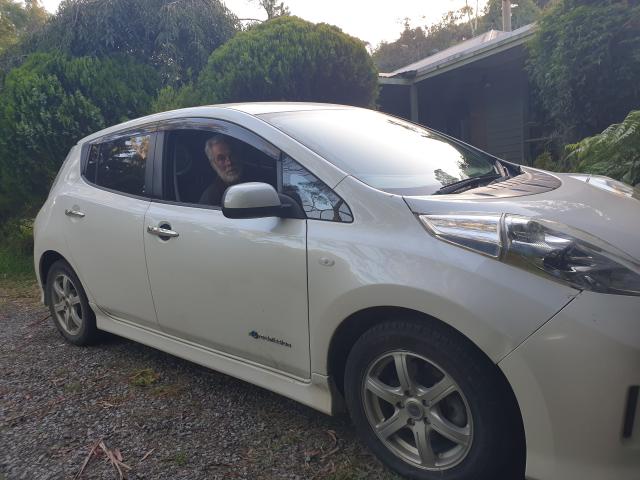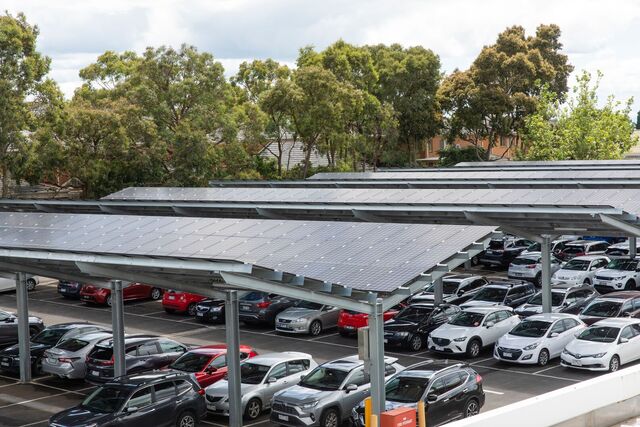Two electric vehicle owners have taken the State Government to the High Court in an attempt to scrap a controversial electric vehicle tax introduced in 2021.
Christopher Vanderstock and Kathleen Davies’ case appeared in court from Wednesday 14 January to Thursday 16 February, the plaintiffs arguing with support from the Federal government that section 7(1) in the Zero and Low Emission Vehicle Distance-based Charge Act is invalid.
The levy costs electric vehicle owners between 2.1 cents and 2.6 cents for every kilometre they drive in and outside the state.
The plaintiffs argued the legislation imposes a duty of excise within the meaning of section 90 of the constitution, which lies beyond the power of the Victorian Parliament.
“That case is founded on the propositions that the charge is a tax on the “consumption” goods (namely, ZLEVs), and that such a tax is a duty of excise,” the plaintiff’s submission read.
The Victorian government will argue the levy is not a tax on goods, but a tax on the activity of driving a zero or low emission vehicle (ZLEV) on a “specified road” as defined in section three of the act.
Although the defendant believes even if the ZLEV charge is a tax on goods, it is not a tax on the production, manufacture, sale or distribution of goods, but rather a tax on the use or consumption of goods.
All other states and territories will support the Victorian government in the case.
David Hertzberg, Senior Associate at Equity Generation Lawyers, representing the drivers at the High Court, said the case will have ramifications “for the division of power between the Commonwealth and the States”.
“The Commonwealth, which is currently designing a national electric vehicle strategy, has intervened in support of our clients. All other States and Territories have intervened against us,” Mr Hertzberg said.
“But, for our clients, this case is about challenging a tax that will discourage everyday Victorians from switching to lower emissions vehicles.
“This tax is an obstacle to cutting emissions and improving air quality, and today we will argue before the High Court that it is unconstitutional.”
Belgrave South resident and the owner of a 2014 Nissan Leaf, Tony Forster, said he pays on the low side of $1,000 for his vehicle each year.
“I’m paying two lots of registration fees… and I’m running at a loss because I’m doing it and I’m doing it because I think it’s important to protect the environment and I couldn’t get what I wanted in one car,” Mr Forster said.
“It seems a pity to be having people giving their own money to protect the environment and then paying a tax to the government on top of that.”
Australian Electric Vehicle Association (AEVA) president Chris Smith said electric vehicle owners do not have a problem with paying to use the roads, but the levy introduced by the state government is “not the fairest” method to tax EV users.
“It certainly wasn’t at a time when the rest of the country was ready to get on board with a more universal road user charge scheme, which ultimately should be administered by the federal government,” Mr Smith said.
“The Victorian government did so saying ‘electric vehicles don’t pay fuel excise, fuel excise is collected for the purpose of maintaining roads. Therefore, EVs aren’t paying to maintain roads, so we’re going to add this.
“That’s interesting, because the Victorian government doesn’t collect fuel excise, the Federal government does. The Federal Government then redistributes it to the states, including Victoria. so the question is, ‘are they trying to address a shortfall in a tax that they don’t actually collect? and if so, is that really fair?’”
If the Federal Government and plaintiffs win the case, Mr Smith said there is an opportunity to create a fairer and more robust system by allowing the Federal Government to impose the road user charge.
“The AEVA has argued that a universal road user charge for all vehicles electric, petrol, or steam, should be subject to a road user charge multiplied by the mass of the vehicle,” he said.
“That is proportional to the damage that they do to the roads, but also it motivates people to buy smaller, lighter cars, because big cars are an absolute scourge, even big EVs.”
If the Victorian government wins the case, Mr Smith said every other state and territory will be emboldened to create their own road user charge schemes with potentially different rates, different administrations, different restrictions and limitations.
“You’re going to have eight different systems out there which none of which may well really achieve the end goal, which is appropriately costing roads.”







